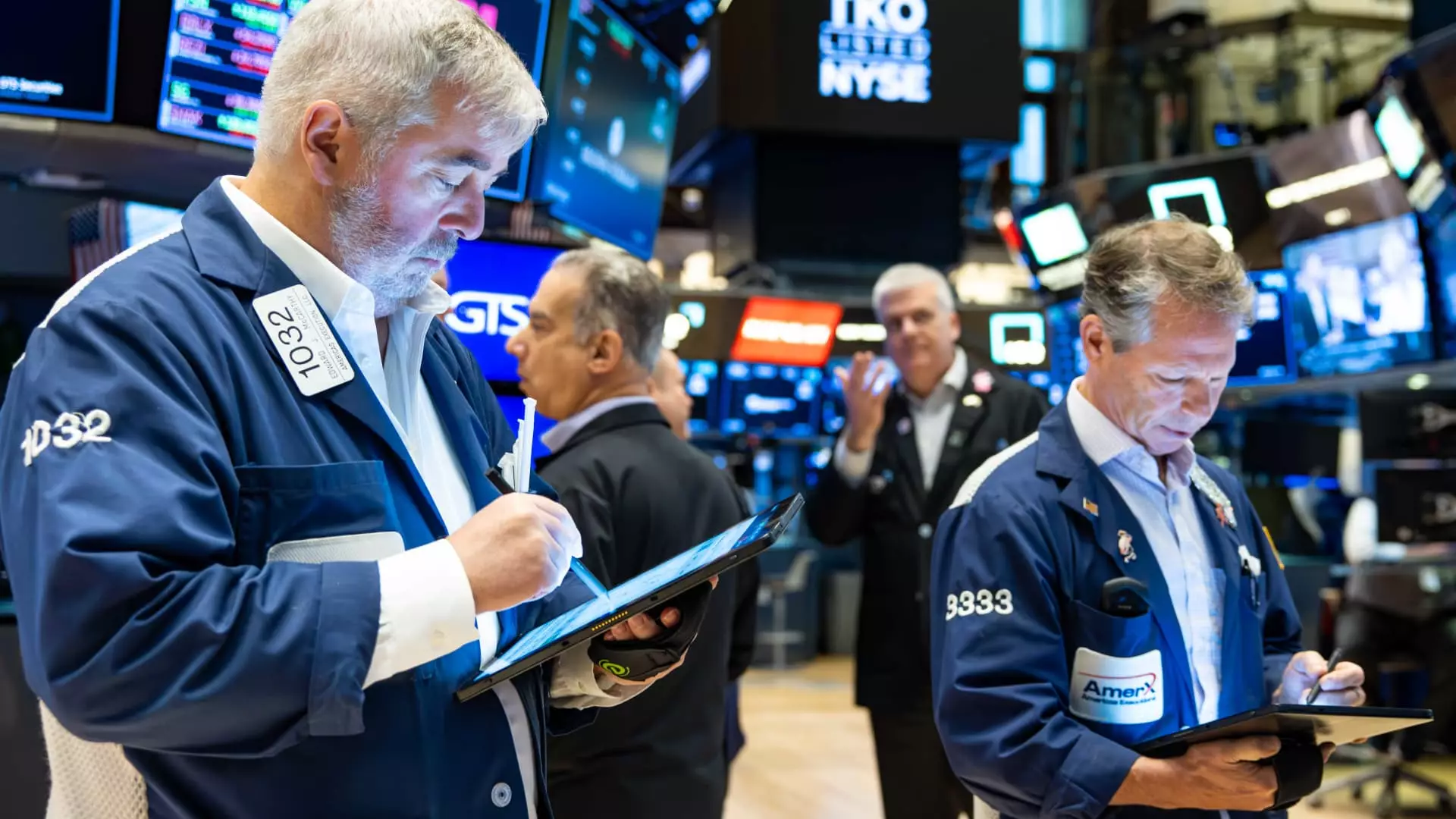The CNBC Investing Club with Jim Cramer provides daily insights that are crucial for investors keen on navigating the volatile markets. On a recent Tuesday, the market experienced mixed reactions as key indices like the S&P 500 and Nasdaq Composite showed slight increases while the Dow Jones Industrial Average faced a minor decline. The primary catalyst for this fluctuation was President-elect Donald Trump’s announcement concerning potential tariffs on imports from significant partners such as Canada, Mexico, and China. Tariffs can often spark concerns over inflation and economic slowdown, prompting traders to re-evaluate their portfolios going into a holiday week marked by reduced trading hours.
Jim Cramer, a well-known figure in financial commentary, highlighted a shift in his typical Thanksgiving trading strategy. Traditionally, he opts to acquire shares on Wednesday and offload them during Friday’s abbreviated session. However, this year, Cramer urged caution, recommending that investors remain cautious and reassess their positions next week. His rationale is grounded in the erratic nature of market reactions to Trump’s social media communications, suggesting that unforeseen statements can quickly alter market sentiments.
The Performance of Key Stocks
Amidst this broader market behavior, certain companies garnered attention for their financial results. Best Buy, renowned for its electronics retail, saw shares plummet by 8% following a disappointing earnings report that fell short of analysts’ expectations. An in-depth analysis from the Club promises clarity surrounding these disappointing results, underscoring the importance of understanding the context behind stock movements. In contrast, Stanley Black & Decker experienced a 3.5% fall as the implications of upcoming tariffs on their operations in China weighed heavily on investor sentiment.
Both companies serve as stark reminders of how external factors—such as international trade policies and earnings performance—can impact stock prices significantly. Cramer’s approach of maintaining current positions in reliable stocks indicates a cautious optimism among certain sectors, even during downturns.
Wells Fargo: A Potential Turning Point?
On a more positive note, Wells Fargo’s stock showed a slight increase of 0.6% after speculative reports emerged suggesting the possibility of lifting its $1.95 trillion asset cap by the first half of 2025. Although these rumors have not been substantiated by Wells Fargo itself, the prospect of ending this limitation represents a crucial turning point for the bank, which has been striving to recover from past misconduct that triggered significant restrictions. Cramer emphasized his position against jumping onto Wells Fargo shares immediately, advising investors to remain vigilant for a potential drop that could present a more attractive entry point.
Such cautious investment strategies serve to remind aspirational investors that impulsive decision-making in response to news can lead to undesirable outcomes. Instead, a wise approach includes thorough evaluation and entry at opportune moments.
Contrasting the optimism surrounding Wells Fargo, Morgan Stanley faced challenges as its stock saw a decline of over 2%. A concerning report from the Wall Street Journal highlighted deficiencies in risk management within the firm’s wealth management division, causing an adverse reaction among investors. Furthermore, HSBC adjusted its rating on Morgan Stanley from “buy” to “hold,” indicating skepticism regarding the current risk-return profile of the stock.
Cramer’s analysis of this situation reveals an important lesson regarding trust and oversight in financial services. Investors are reminded that thorough risk assessments are essential, particularly when managing client assets. His advice to avoid new buys at this juncture reinforces the importance of due diligence in investment decisions.
As we navigate through volatile markets, the insights from the CNBC Investing Club underscore the pressing need for strategic patience. Markets will remain susceptible to both domestic policies and global economic trends, making it crucial for investors to maintain a level-headed approach amidst uncertainties. Cramer’s perspectives encourage traders to pivot away from seasonal patterns, focusing instead on strong fundamentals and long-term viability in their investment choices. With a mindful approach and an ear tuned to the market’s pulse, investors can weather the storms of change and find opportunities even in challenging times.

